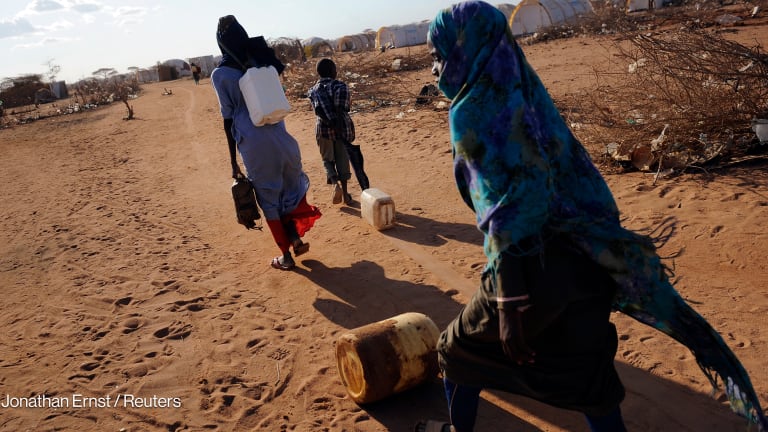Equal rights and the inherent dignity of all humans is the main theme of this year's International Day for the Eradication of Poverty on Oct. 17. The Stand Up and Take Action campaign is bringing together millions of people around the world to help eradicate poverty.
The current financial crisis in industrialized nations is nothing new for millions of people living below the poverty line.
"Germany, the United Kingdom and the United States can together find $2,300 billion to bail out their banks, but only $103 billion to bail out the genuinely poor," said Mike Smith, director of Caritas. "It's the same in other rich countries, the urgent response to the current financial crisis stands in stark contrast to the slow and half-hearted response to the on-going food crisis in developing countries."
Acknowledging the 60th anniversary of the Universal Declaration of Human Rights, U.N. Secretary-General Ban Ki-moon said that poverty will not be eliminated without "due respect for human rights."
The "rights-based approach" to development has received growing attention among international development stakeholders in the past few years. It assumes that poverty is not something inherited or imposed on humans, but a direct violation of human rights. Thus, it omits the notion of charity and treats the poor not as beneficiaries but as rights-holders. Human rights claims are always coupled with duty-bearers, and the rights-based approach seeks to tackle the root causes of poverty by empowering the disenfranchised to claim their rights and encouraging duty-bearers to meet their obligations. It advocates for an institutional framework in which individuals have the right to make claims against states and other stakeholders, should those fail to fulfill their respective duties and responsibilities.
"Development by people - not for people" is the underlying rationale seeking to re-politicize certain areas of development work, particularly in when it comes to the involvement of "right-holders."
Moving beyong the rhetoric of recognizing poverty as a state of injustice, reality remains alarming. Several analysts claim that the human-rights approach to development is nothing more than a new fashion, the emperor's new clothes which development agencies "must" wear in order to continue their work.
According to World Bank 2006 data, "For every $1 in aid a developing country receives, over $25 is spent on debt repayment." Debt repayments are being extracted directly from people who never received any money or had any say when those debts were amassed.
Using an income of $1.25 a day as poverty line, the World Bank now estimates that 1.4 billion people are live in poverty.
Some 1 billion out of 2.2 billion children in the world live in extreme poverty. According to the United Nations 2007 Human Development Report, 26,500 to 30,000 "die each day quietly in some of the poorest villages on earth, far removed from the scrutiny and the conscience of the world. Being meek and weak in life makes these dying multitudes even more invisible in death."
It's true that different approaches to combating the status quo have been put forward. Yet, facts and figures testify to little progress. Increasing debts, stagnant agricultural growth, unfavorable trade patterns for developing nations, as well as persistent epidemics and health problems are just some of the root causes of poverty. They demand immediate action.








